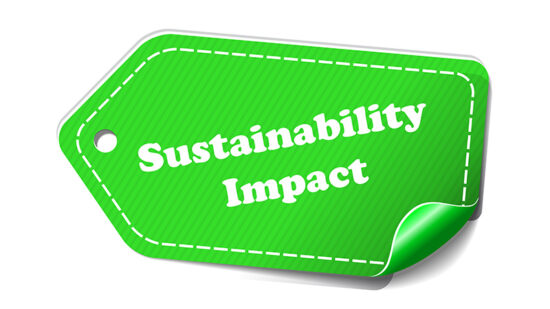The Brazil Bovespa index has returned 9.4% over the last year, while the Mexico Bolsa index lost 7% over that period, according to Thomson Reuters Lipper data. Colombia’s Colcap index has returned 16.1% over that period, according to Bloomberg.
Colombia heads to the polls in May, Mexico casts its vote in July, and Brazil holds presidential elections in October.
Tilney managing director Jason Hollands says the elections bring an element of uncertainty to a region where GDP growth has been accelerating, including in Brazil, which had seen its economy contract in 2015 and 2016.
Hollands says Tilney has a preference for Asia in emerging markets with the outlook for Latin America “mixed”.
Fireworks in Mexico
Mexico is currently viewed as the economy most likely to deliver a leftist president with anti-establishment populist Andrés Manuel López Obrador, known as Amlo, leading polls by a wide margin, tapping into widespread public anger against the established parties.
The worst performing European-domiciled Latam funds are focused on Mexican equities, including HSBC GIF Mexico Equity IC (-22.98%) and BTG Pactual Mexico Equity (-11.97%), not helped by president Enrique Peña Nieto’s corruption-laden time in office.
“That’s where the fireworks are going to be. Amlo’s going to win,” says Ashmore head of research Jan Dehn. Come July bank analysts and commentariat are going to have depicted Amlo as a “complete devil”, Dehn says.
He adds: “The market is probably going to overprice the risk of Amlo and when he gets elected you’ll probably get a rally because the market has become too pessimistic. If he doesn’t win and we get a moderate right-wing president the markets are going to rally like crazy. Either way, I think you want to be long Mexican bonds going into the election.”
Nikko Asset Management expects Amlo to secure the presidency albeit without the two-thirds majority required for constitutional reform.
“We do not believe that investors should panic,” says Nikko AM portfolio analyst Matthew Holdgate. “Amlo has moderated his policies significantly over the years, partly in order to make himself more electable, but also in recognition of the limits he will likely encounter in Congress.”
Volatility is likely to increase as the campaign intensifies and some investors will divest from Mexican assets if Amlo wins, Holdgate says, but this will create a buying opportunity.
“We expect to see policy continuity on a number of measures including Nafta and energy reforms clarified early on in his presidency.
“This will likely see investors return to Mexico, particularly given a combination of cheap asset prices, declining inflation and the removal of policy uncertainty.”
Largest allocation to Mexico in IA Global Emerging Markets funds
| Fund | Region % Mexico | |
| F&C Emerging Markets | 12.2% | |
| BMO LGM Global Emerging Markets Growth and Income | 10.7% | |
| EP Emerging Opportunities | 9.3% | |
| Newton Emerging Income | 8.2% | |
| Axa Framlington Emerging Markets | 7.5% | |
Source: FE
Brazil up for grabs
Brazil’s favoured candidate is currently behind bars.
Former president Luiz Inacio Lula da Silva surrendered himself to authorities over the weekend, although he has vowed to fight for his innocence and against his 12-year sentence.
Pension reform is the top concern fund managers would like to see addressed in Brazil.
Right-wing Congressman Jair Bolsonaro – from the Partido Social Liberal (PSL) – is edging the polls in the absence of Lula.
Despite advocating far-right views on a number of social policies, Bolsonaro’s economics team, headed by Paulo Guedes, would likely pursue a number of liberal economic policies including privatisation and tax simplification.
On the left, Ciro Gomes from the Partido Democrático Trabalhista (PDT) looks poised to try to capitalise on Lula’s downfall, with a pledge to obstruct, or at least dilute, the impact of pension reform and also to oppose privatisation.
Dehn says Lula’s imprisonment is part of a broader trend in emerging markets where politicians are held accountable for corruption.
Peru’s president Pedro Pablo Kuczynski resigned in March amid a corruption scandal and Argentina’s former president Cristina Fernandez de Kirchner is facing trial for money laundering and corruption.
“We’re seeing the middle class in emerging markets make itself heard more loudly, particularly in the realm of the judiciary.”
The next Chavez
Colombia is the smallest economy in the trio of elections, but leftish candidate Gustavo Petro is drawing comparisons with the late Hugo Chavez, the former military dictator of neighbouring Venezuela, which is in a spiral of economic decline and this year is projected to face inflation of 13,000%.
Colombia runs a two-round election process with right-wing challenger Iván Duque widely tipped to ultimately take out the presidency.
Blackrock Frontiers Investment Trust fund manager Sam Vecht says: “It’s highly unlikely from what Colombia’s seen going on next door and seeing poverty created from wealth that that country or any form of government there would want to go in any way in the direction of Venezuela.
“Any politician that comes to power in any country will make mistakes, but it takes years, possibly even decades of mismanagement to get to a Venezuelan-like scenario.”
Dehn argues comparisons between Petro and Chavez or current president Nicolas Maduro are a “massive exaggeration”, pointing to the fact Petro is the mayor of Bogata, which he describes as a well-run city. However, he still considers Duque the favourite.
Colombia’s business cycle is starting to turn up following a protracted downturn on the fall in oil prices, he says, and growth is improving as inflation falls.
“Duque will have a relatively easy ride,” Dehn says, albeit adding Colombia’s parliamentary complexity would be the “fly in the ointment”.
The Blackrock Frontiers Investment Trust, which recently expanded its investment universe, has been able to invest in Colombia despite the fact it is an emerging market rather than a frontiers market.
Vecht says: “Colombia has benefited from a slightly-better oil price, that’s had a positive impact at the margin on the currency.”
He adds Blackrock has taken profits on Colombian companies that had performed well over the last couple of months taking the fund’s total weighting to 2% at the end of January.
Largest allocation to South America in IA Global Emerging Markets funds
| Fund | Region % South America |
| Neptune Emerging Markets | 20.3% |
| Janus Henderson Emerging Market Opportunities | 19.6% |
| First State Global Emerging Markets Focus | 16.6% |
| T Rowe Price Emerging Markets Equity | 15.3% |
| Aberdeen Emerging Markets Equity | 14.9% |







